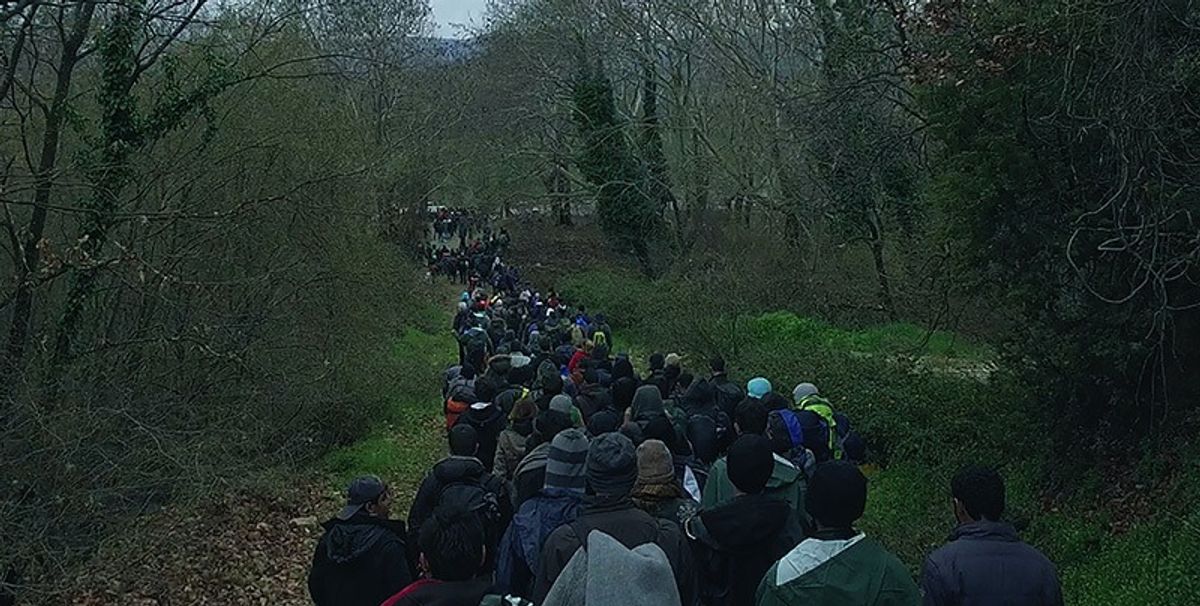Human Flow, Ai Weiwei’s first feature film about the global refugee crisis which premieres at the Venice International Film Festival at the end of this month, is due to be released in American theatres this autumn. The US distribution rights to the film have been acquired by Amazon Studios, the media production arm of the online retailer giant owned by billionaire Jeff Bezos, so fans of the Chinese artist-activist could soon expect to stream the documentary at home.
Filmed mostly on the Greek island of Levsos, the documentary includes interviews and footage from more than 40 refugee camps in 23 countries. According to the German/American producers’ website, the film examines the global plight of migrants driven from their homelands by poverty, war and climate change. The subject suggests a wry biographical commentary, since Ai Weiwei was confined to his own country for years after Chinese authorities seized his passport and banned him from travelling. He now lives in Berlin and turns 60 just before the opening of the Venice festival (30 August-9 September).
“Human Flow is a personal journey, an attempt to understand the conditions of humanity in our days,” Ai Weiwei said when the project was announced in February. “The film is made with deep beliefs in the value of human rights. In this time of uncertainty, we need more tolerance, compassion and trust for each other since we all are one. Otherwise, humanity will face an even bigger crisis.”
Premiering the film in Italy is likely to bring its own controversy. The plight of refugees who pack into boats from North Africa—many of whom don’t survive the journey—is a hotly divisive issue in Italian and European politics. RAI, the Italian television network, is a co-producer of Human Flow.
The global refugee crisis is a central subject of Ai Weiwei’s recent work, including the lifeboat-themed Law of the Journey installation now on view at the National Gallery in Prague and the thousands of life-vests that he wrapped over building facades in Berlin and Vienna.


